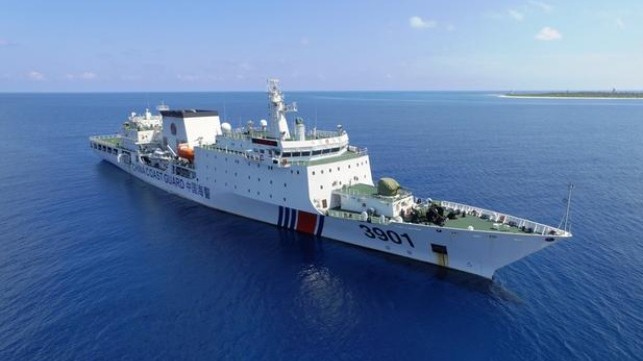Philippines Pushes Back on China's New Coast Guard Law

After initially downplaying the significance of a new Chinese law that loosens the use-of-force rules for the China Coast Guard, the government of the Philippines has reversed course and filed a formal objection.
"After reflection, I filed a diplomatic protest," said Philippine Foreign Secretary Teodoro Locsin Jr. on Wednesday. "While enacting law is a sovereign prerogative, this one – given the area involved or for that matter the open South China Sea – is a verbal threat of war to any country that defies the law; which, if unchallenged, is submission to it."
Two days earlier, Locsin had said that the law was "none of our business" and described it as an exclusively internal matter for the Chinese government.
China's newly-enacted Coast Guard Law allows the agency to “take all necessary measures, including the use of weapons, when national sovereignty, sovereign rights, and jurisdiction are being illegally infringed upon by foreign organizations or individuals at sea." This includes the use of small arms, based on the "nature, degree and urgency" of the case and the personnel's "reasonable judgement." In the event of serious non-compliance, the use of deck guns would be permitted.
The law also empowers the CCG to halt construction or destroy foreign structures on Chinese-claimed land features, like those on the Philippine-occupied Pag-asa Island and Second Thomas Shoal. It gives the CCG broad discretion to set up temporary exclusion zones and to board and inspect foreign vessels within Chinese-claimed waters.
As China claims the overwhelming majority of the South China Sea as its own, including large segments of the Philippine EEZ, it has significant implications for Philippine fishermen and vessel operators.

that matters most
Get the latest maritime news delivered to your inbox daily.
Pamalakaya, the industry association for Philippine artisinal fishermen, told the South China Morning Post that the law “contradicts the principle of freedom of navigation recognised by international maritime law."
"[The Coast Guard Law] is virtually a declaration of war against countries that are legitimate claimants of the Chinese-claimed marine territory," said Pamalakaya chairman Fernando Hicap in a statement. "This is a serious threat to Filipino fishers . . . in our very own territorial waters,”
